by Amanda Hawley & Lisa Carlson, UNeMed | April 29, 2024
Who or what is an inventor?
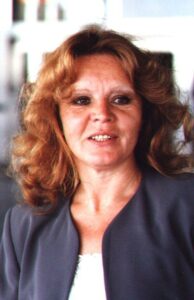
Dr. Baranowska-Kortylewicz
Are they a breed of masterminds; lightning rods for “ah ha” moments – moments when the stars and planets align to conjure up the next best thing?
One of UNMC’s most prolific inventors believes there is no such a thing as an “ah ha” moment.
“You sit down and you say, ‘Well, this is the disease that I want to treat,'” said Janina Baranowska-Kortylewicz, PhD, a UNMC professor of pharmaceutical sciences with 21 inventions to her credit, the most among female inventors at UNeMed.
“Not only is Dr. Baranowska-Kortylewicz one of our most prolific inventors, she has also been one of the few that has driven her invention to the clinic,” said Michael Dixon, PhD, President and CEO of UNeMed, the technology transfer office for UNMC and UNO.
The FDA approved an Investigational New Drug (IND) application for the clinical use of one of her radioactive drugs, a rare milestone for academic innovators.
“In addition to creating several new diagnostic and therapeutic technologies,” Dr. Dixon said, “Nina did all the IND enabling work, and helped to obtain an IND to allow her discovery to move into the clinic.”
For her, it’s about identifying a problem and creating solutions to face it head on.
“I look at the problem, and, within my little area of expertise, I try to make the best drug that addresses all of the problems,” said Dr. Baranowska-Kortylewicz, who completed her Masters work in Wrocław, Poland, at the University of Science and Technology before completing her doctoral work in medicinal chemistry under the mentorship of Dr. Walter T. Smith, Jr. at the University of Kentucky in Lexington.
For more than 15 years, she has directed UNMC’s Harry J. Bahr Radiolabeling Facility, where she led preparations for clinical studies of radioactive drugs and radioimmunoconjugates. Dr. Baranowska-Kortylewicz, who continued her postgraduate research at Harvard Medical School, focuses her research activities on the design, synthesis and evaluation of theranostics. Theranostics are a medical mash-up that combine or add diagnostic features to a drug therapy or treatment. Dr. Baranowska-Kortylewicz’s theranostics, however, go a step further than simply improving radioactive drugs into vehicles that simultaneously diagnose and treat cancer. They have the added benefit of dramatically reducing the toxic side effects commonly associated with radiation therapies.
Despite her innovative work, she has never considered herself an inventor.
“Every single thing was basically me trying to either design something that would help or improve on something that was already there,” she said, adding later: “I first look at what is it that I’m going to improve in cancer treatment. So, if I can make the drug that is targeted, that its targeted specifically to cancer cells, that’s the direction that I’m going to go.”
With an idea or invention in hand, inventors like Dr. Baranowska-Kortylewicz’s must test the invention’s mettle through miles of trials, where development efforts are often littered with the perilous sinkholes of failed attempts and the crags of mountainous obstacles.
“Don’t assume that if you think your invention is great, everybody else will agree with you,” she said. In instances when you go toe-to-toe with doubters, she said, “If you are really convinced that your study, your data, and your ideas are good, you cannot be de-swayed by a few rejections, you have to persist.”
When facing the hardships of project and technology development, it helps to be backed by a solid structure of supporters and collaborators, Dr. Baranowska-Kortylewicz said.
“My best support system is my husband. We’ve been working together for so many years, and he rages on my behalf, when I don’t get grants so I don’t have to,” she said jokingly.
Dr. Baranowska-Kortylewicz stresses the importance of having colleagues with whom to commiserate as a way to help process difficult feedback and undesirable rejections.
“As I said, the best support system are your colleagues who are pretty much in the same boat, and of course your husband who has your back.”
She credits administrative support for her success as an inventor. Ram Mahato, PhD, chairs UNMC’s Department of Pharmaceutical Sciences, and has proved to be strong ally for Dr. Baranowska-Kortylewiecz’s innovative work.
“Nina is really good and does very good research,” Dr. Mahato said. “She is one of the best research faculty we ever had.”
Don Coulter, MD, a pediatric oncologist and frequent collaborator with Dr. Baranowska-Kortylewicz, agrees.
“Nina has been one of the most important and inspiring researchers I have had the opportunity to work with,” he said.
He added: “Nina does an excellent job of translating her work into meaningful solutions for pediatric cancer patients and their families. She is an extraordinary scientist, and I’m incredibly proud to have played a small part in her accomplishments.”

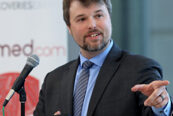

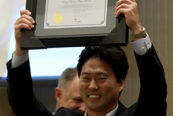



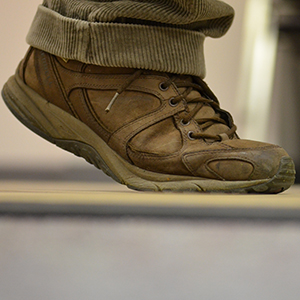
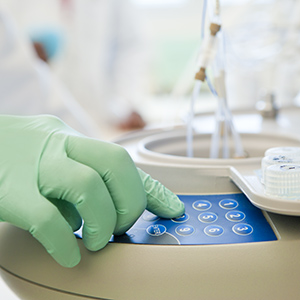


[…] […]